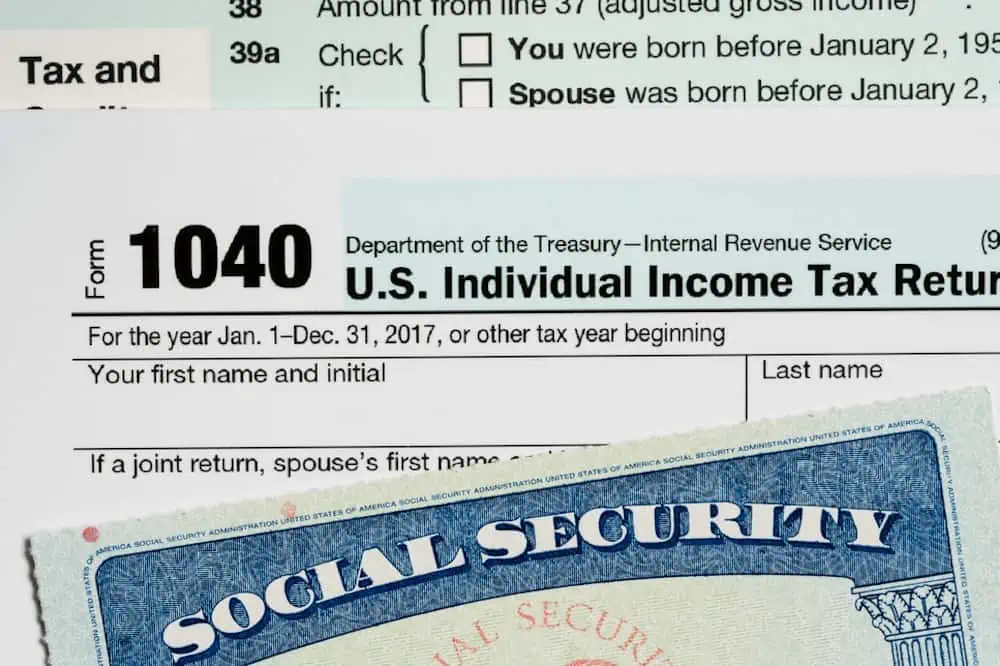Few financial topics cause more anxiety than retirement savings.
It’s easy to understand why: The size of a person’s nest egg is arguably the greatest factor in determining the quality of their post-career years … and, unfortunately, many Americans either aren’t sure whether they’ll reach their savings goals or are certain they won’t.
Consider AARP’s 2024 annual Financial Security Trends Survey, which polled more than 8,300 American adults over age 30 about various financial topics. Nearly a third of respondents (31%) said that, if they continued saving at their current rate, they weren’t sure whether they would have enough money to retire. Worse? A full third (33%) knew they would not have enough.
And if we had to guess, reading that has you asking yourself, “Where do I stand?”
Today, I’m going to talk about the average retirement savings by age group to give you an idea of how your savings currently compare to your peers. While your retirement savings needs might be different from others, these benchmarks can still give you a general idea of your progress. And with that knowledge in hand, you can start making the adjustments you need.
Table of Contents
What Are The Average Retirement Savings by Age?

As part of this discussion, I’ll be using retirement savings data from the 2022 Federal Reserve Survey of Consumer Finances (SCF). The data is sorted into the following six age groups:
— Under age 35
— Ages 35 to 44
— Ages 45 to 54
— Ages 55 to 64
— Ages 65 to 74
— Age 75 or older
The Survey of Consumer Finances lists both median savings and mean (average) savings for Americans across all of a person’s retirement accounts. While you can make cases for both, we’ve gone for mean savings because there are caps on how much people can contribute to their retirement accounts, which limits the extent to which an outlier could impact the data.
Under Age 35

— Average retirement savings: $49,130
It should come to no surprise that the youngest age cohort has the lowest average retirement savings. Workers under age 35 have accumulated retirement savings of just more than $49,000 on average.
Among the things working against this group, which includes younger Millennials, Gen Z, and Gen Alpha:
— You can’t open your own brokerage account until you’re age 18.
— While there’s no minimum age to open an individual retirement account (IRA), you must have earned income to be able to do so.
— Many people in this age cohort aren’t even aware of how to save for retirement.
— People in this age cohort who have careers often make less than they will at any point in their careers, and also might be paying off student loans, so in general, they’ll have less available money to save.
— Some people in this age cohort who have careers still might not have access to a 401(k) or another workplace retirement plan.
— Most in this group have only started to benefit from the effects of compounding.
On top of all those natural limitations, many people simply don’t even begin to plan for retirement until they feel somewhat settled in the professional world (and until someone makes them aware of the need to save for retirement).
For all of these reasons, and more, it’s understandable that Americans under the age of 35 have relatively little saved up for retirement.
Related: Best Vanguard Retirement Funds for a 401(k) Plan
Ages 35 to 44

— Average retirement savings: $141,520
People between the ages of 35 to 44 have had more working years to contribute more to their savings, enjoy capital appreciation, and collect dividends and interest income. As a result, they have significantly higher average retirement savings, at more than $141,000.
However, the Center for Retirement Research at Boston College notes that the age group’s median retirement savings in 401(k)/IRAs was actually lower than it was in 2019—despite a roughly 64% total return (price plus dividends) for the S&P 500 between the start of 2019 and the end of 2022. Mean savings across all retirement accounts declined during this period, too.
Something else to note: This age range is a common time for people to start seeking advice from a financial advisor. According to Northwestern Mutual’s 2024 Planning & Progress Study, among people with a financial advisor, the average age a person started working with a financial advisor was 38.
But data hints that younger generations are seeking financial advice even earlier in life. Millennials with a financial advisor say they first sought out advice at age 29, on average. That’s nine years sooner than Gen X (age 38) and Boomers+ (49).
Related: 5 Best Schwab Retirement Funds [High Quality, Low Costs]
Ages 45 to 54

— Average retirement savings: $313,220
And naturally, as workers age, more and more things are working in their savings’ favor. Workers are earning more, likely have better benefits (specifically, 401(k) matches), and have had even more time for price gains and investment income to compound. As of the most recent Federal Reserve data, the 45-to-54 cohort has more than $313,220 set aside for retirement.
This cohort also benefits from an additional retirement-savings amplifier: catch-up contributions. Catch-up contributions are an additional sum that older adults can save over an account’s annual contribution limits, allowing them the opportunity to boost their savings in select tax-advantaged accounts. You can begin making catch-up contributions during the year in which you turn 50.
For instance, the 401(k) contribution limit for 2024 is $23,000 for an individual; the catch-up contribution limit is $7,500, so people 50 and over can contribute a total of $30,500 for the year. The IRA contribution limit for 2024 is $7,000, and the catch-up contribution limit is $1,000, so people 50 and over can contribute a total of $8,000 for the year.
Related: Should I Pay Off My Mortgage Before I Retire?
Ages 55 to 64

— Average retirement savings: $537,560
Full retirement age (by Social Security standards) is 66 to 67, which would seem to indicate that this age cohort is still fully of working age. However, Americans’ actual average retirement age is 62, according to MassMutual’s 2024 Retirement Happiness Study, so this group does indeed include at least some retirees.
People between the ages of 55 and 64 have an average retirement nest egg of more than $537,000, reflecting decades’ worth of both savings and growth. Many people in this group are also capable of socking much more away—a result of both a higher annual income and fading expenses (their own student loans are usually paid off, kids begin to finish college, mortgages become paid off, etc.).
That said, once people reach their 50s and 60s, they increasingly adjust their investment focus from wealth creation to wealth preservation. Put differently: Their retirement portfolios become more conservative in nature. It’s a necessity, but it does start to limit the growth potential of their savings.
Related: Retired But Too Young for Medicare? Health Insurance for Early Retirees
Ages 65 to 74

— Average retirement savings: $609,230
And, as you might expect, adults between the ages of 65 and 74 have the highest amount of retirement savings, on average stashing away some $609,000.
Most adults within this age group are either very close to calling it a career or completely retired. So, while at least some of these people are still contributing to retirement accounts, many are already withdrawing from their nest egg.
Also, according to the Social Security Administration, as of mid-2024, almost 90% of people ages 65 and older were receiving a Social Security benefit. Thus, the vast majority of people in this cohort are also collecting a Social Security check.
Related: How to Invest HSA Funds [Level Up Your Retirement Savings]
Age 75+

— Average retirement savings: $462,210
The vast majority of Americans who are 75 and older have left the workforce. For instance, in a 2022 Gallup poll, 88% of respondents ages 75 and older said they were retired.
Most people in this age cohort are living off Social Security benefits and other sources of retirement income, which includes withdrawing from their retirement accounts. So naturally, it stands to reason that their average retirement savings balance, at more than $462,000, is actually quite lower than the 65-to-74 age group’s average.
Related: 5 Best Fidelity Retirement Funds [Low-Cost + Long-Term]
How Else Do I Know Whether My Retirement Savings Are on Track?

While knowing how much other people your age have in retirement savings is useful, it doesn’t give you the full picture of how much you should have saved. Your cost of living may vary substantially depending on the location; thus, someone who lives somewhere with a high cost of living will need to save more than someone living somewhere more affordable. Additionally, people have different lifestyle expectations.
With that in mind, another way to track your progress is to consider Fidelity’s guidelines for how much you should have in retirement savings at the following ages:
— Age 30: 1X your annual salary
— Age 40: 3X your annual salary
— Age 50: 6X your annual salary
— Age 60: 8X your annual salary
— Age 67: 10X your annual salary
These guidelines assume you plan to retire at age 67. If you’re aiming for an early retirement, you would need to be more aggressive.
Obviously, both the by-age and by-annual-salary numbers provide an incomplete picture of exactly what you need to retire. If you want more comprehensive insights into your retirement goals, help with the retirement planning process or even, or even just have personal finance questions, it’s wise to discuss your needs with a financial advisor.
Related: 5 Best Vanguard Retirement Funds [Start Saving in 2024]
How Much Retirement Savings Is Enough?

When it comes to how much you need to set aside for retirement, the first thing you need to know is there’s no magic number for everyone. Retirement savings goals vary by person.
My goal today is helping you figure out how to determine your own number.
The amount of retirement income you will need depends on your planned retirement age, where you plan to live, and other factors. Fortunately, after asking yourself a few questions, you’ll be able to estimate realistic retirement goals.
Sir Arthur Conan Doyle’s famed sleuth, Sherlock Holmes, famously says, “To begin at the beginning.” In other words, if you want to know where you need to go to get where you want, you should begin at the beginning.
For this retirement savings exercise, though, I say we need the reverse—we’ll begin at the end and work our way backward. That way, we can set our desired outcome and understand what needs to happen now to get where we want later in retirement.
Use the following factors to more accurately determine how much you need to save for retirement.
Factor #1: Retirement Age

When will you retire? If you’re hoping for an early retirement, you’ll need more money saved than someone who retires at the customary retirement mark (age 65). Likewise, retiring later generally means needing less money.
Your career path might make a significant difference in your retirement age. Does your job involve hard labor that will become more challenging as you age? Or do people in your profession often continue working past the standard retirement age?
Also consider your health, life priorities, and what’s realistic for your financial situation.
Factor #2: What Lifestyle You Want in Retirement

Many people plan to maintain roughly the same lifestyle as they have during their working years. Others work hard for decades so they can live more lavishly during retirement. Do your retirement goals include frequent travel? Do you want to treat yourself to a new car or home renovations? Retirees often spend a lot of time (and money!) spoiling grandchildren.
Make sure the retirement income you’re planning for is high enough that it won’t just cover the basics, but will let you have a little fun, too.
Related: The 7 Best Vanguard ETFs for 2024 [Build a Low-Cost Portfolio]
Factor #3: Where You Want to Live

Both the city you plan to live in and the type of home you plan to stay in will affect how much money you need for retirement.
Those who currently live in a high-cost-of-living area and plan to stay there will need more money than those who plan to move to an area with a lower cost of living. If you own a large house and plan to downsize, that will help curb expenses.
However, if you rent, you should assume costs will rise over time and you might need a higher annual income for retirement than you expected. The same goes for anyone who plans to move to an expensive assisted-living facility.
Related: 7 Best Schwab ETFs to Buy [Build Your Core for Cheap]
Factor #4: 4% Rule (Or Your Personalized Safe Withdrawal Rate)

The 4% Rule is the guideline that you should withdraw only up to 4% of retirement savings during your first year of retirement. After that, you should adjust the amount for inflation each year and withdraw that amount.
Pretend your total retirement investments are worth $2 million and you expect to earn an investment return of 5.5% annually. During your first year of retirement, you would withdraw up to $80,000.
Now imagine inflation rises to 4% that year. According to the 4% rule, the following year you should plan to withdraw up to $83,200.
Sticking to this rule should mean you will likely have enough money to handle 30 years of retirement.
However, this is one-size-fits-most advice. It isn’t tailored to your specific situation, and you shouldn’t rely on it blindly. It includes a lot of assumptions about your retirement plans that aren’t necessarily true for you.
Even the creator of the rule, Bill Bengen, believes the 4% rule is outdated. (FYI, he now thinks it’s safe to pull more money in retirement—up to 5%. However, others think it should be less than 4%, so take all of this with a grain of salt.)
Based on your unique circumstances, you might need to withdraw more or less from your retirement savings to live the retirement you want.
Related: How Much Should I Contribute to My 401(k)?
Factor #5: Budget for 80% of What You Currently Make

During retirement, you’ll need roughly 80% of your pre-retirement annual income, provided you aren’t planning on upping your lifestyle.
For instance, if your current annual salary is $80,000, you should aim to save enough to generate at least $64,000 in retirement income per year for the number of years you expect to be retired.
Why only 80%, not 100%? For one, currently you’re stashing a good chunk of every paycheck into a retirement savings account, right? You won’t be setting that money aside once you’re retired.
Hopefully, you’ll also pay off your house, student loans, and other consumer debt before retiring. You might also have lower transportation expenses (from no longer commuting to work), you may be in a lower tax bracket (meaning you’ll owe less in taxes), you’ll be receiving Social Security, and more.
Related: The 10 Best Fidelity Funds to Own
Related: 10 Ways You Risk Losing Your Social Security Benefits

Social Security is designed to provide some financial stability to certain groups of Americans. But while it’s virtually guaranteed to those groups, it can, in certain circumstances, be taken away. We cover the numerous ways in which you can risk losing your Social Security benefits.
Related: 11 Ways To Avoid Paying Taxes on Your Social Security

If you’re looking to minimize the tax bite taken out of your Social Security benefits in retirement, you’ve got several available actions to reduce how much you pay each year. We outline several ways to avoid paying taxes on your Social Security benefits.
Related: How Are Social Security Benefits Taxed?

In many cases, Social Security benefits are subject to federal taxation. To learn how your Social Security benefits are taxed, we’ve got an entire guide to walk you through the calculation.
Related: 10 States That Tax Social Security Benefits

While most states don’t subject Social Security benefits to taxation, at least 10 states do tax Social Security. To see if you live in one of them, or you’re considering a relocation for retirement and taxation of your Social Security is a sticking point, we’ve got you covered with all of the details.
Please Don’t Forget to Like, Follow and Comment

Did you find this article helpful? We’d love to hear your thoughts! Leave a comment with the box on the left-hand side of the screen and share your thoughts.
Also, do you want to stay up-to-date on our latest content?
1. Follow us by clicking the [+ Follow] button above,
2. Subscribe to The Weekend Tea, our weekly newsletter to read more about investing, spending, taxes, and more, and
3. Give the article a Thumbs Up on the top-left side of the screen.
4. And lastly, if you think this information would benefit your friends and family, don’t hesitate to share it with them!





